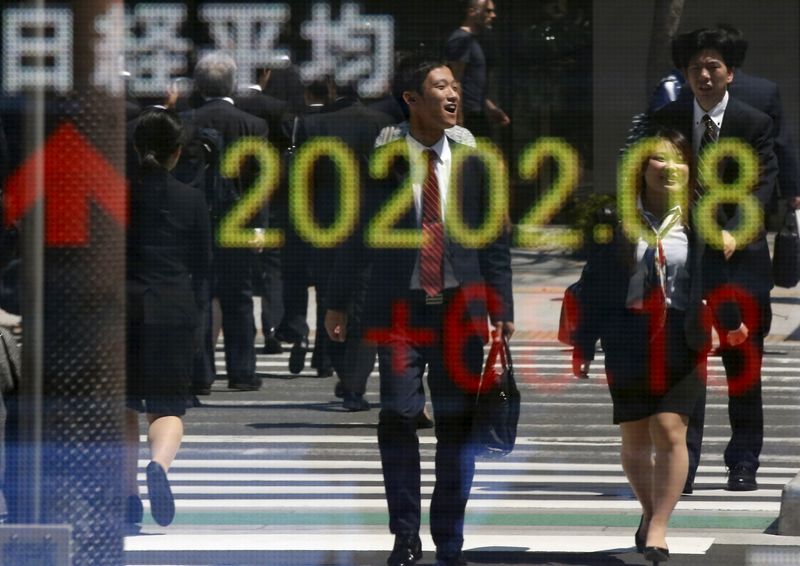This post was originally published on this site
https://i-invdn-com.investing.com/news/LYNXMPEB3S00V_M.jpg
Investing.com – Asia Pacific stocks were up on Thursday morning, after China took action to calm recent market turbulence, while the U.S. Federal Reserve said more economic progress was needed before it begins asset tapering.
Japan’s Nikkei 225 was up 0.48% by 10:43 PM ET (2:43 AM GMT) and South Korea’s KOSPI inched up 0.03%.
In Australia, the ASX 200 was up 0.38%, with the Reserve Bank of Australia (RBA) expected to delay its planned asset tapering as it hands down its policy decision in the following week. The delay comes a mere four weeks after the plans were announced and extended lockdowns in Sydney are also expected to take a toll on the economy.
RBA currently plans to begin asset tapering in September, with a review to follow a few months later.
Hong Kong’s Hang Seng Index jumped 2.11%. China’s Shanghai Composite rose 0.91% and the ShenzhenComponent rose 1.97%. Investors continue to await the impact of a call reportedly led by China Securities Regulatory Commission (CSRC) Vice Chairman Fang Xingha and executives at major investment banks.
The hastily-convened was an attempt by CSRC, China’s securities regulator, to calm a multi-day selloff in Chinese and Hong Kong shares sparked by the recent crackdown on several sectors, including private education.
“The message is that profit has not become a dirty word in the Chinese system of ‘Socialism with Chinese characteristics’, only in certain sectors… how successful the messaging by the authorities will be in putting a floor under the broader Chinese stock market remains to be seen,” NAB head of FX strategy Ray Attrill told Reuters.
In the U.S., the Fed kept interest rates in a target range between zero and 0.25% as it handed down its policy decision on Wednesday. Although officials discussed how to begin asset tapering, no details on the timing were given. Fed Chairman Jerome Powell did say, however, that it would still be a while before conditions for asset tapering are met. The central bank also reiterated that inflation is likely to be transitory and linked to the economic re-opening from COVID-19.
However, the spread of COVID-19 cases involving the Delta strain globally and the ripple effects from the Chinese crackdown remain as risks.
“While the economy appears to be inching closer, the Fed has not yet seen sufficiently outsized data to warrant a meaningful policy change… as a result, we expect the markets to remain volatile in the near-term, driven largely by this season’s remaining corporate earnings announcements, key upcoming economic data reports and the pace of progress in curtailing COVID-19,” AXS Investments LLC chief executive officer Greg Bassuk told Bloomberg.
Meanwhile, U.S. second-quarter GDP data is due later in the day. A bipartisan group of senators and the White House also reached a tentative agreement on a $550 billion infrastructure package, which forms part of U.S. President Joe Biden’s economic agenda.

